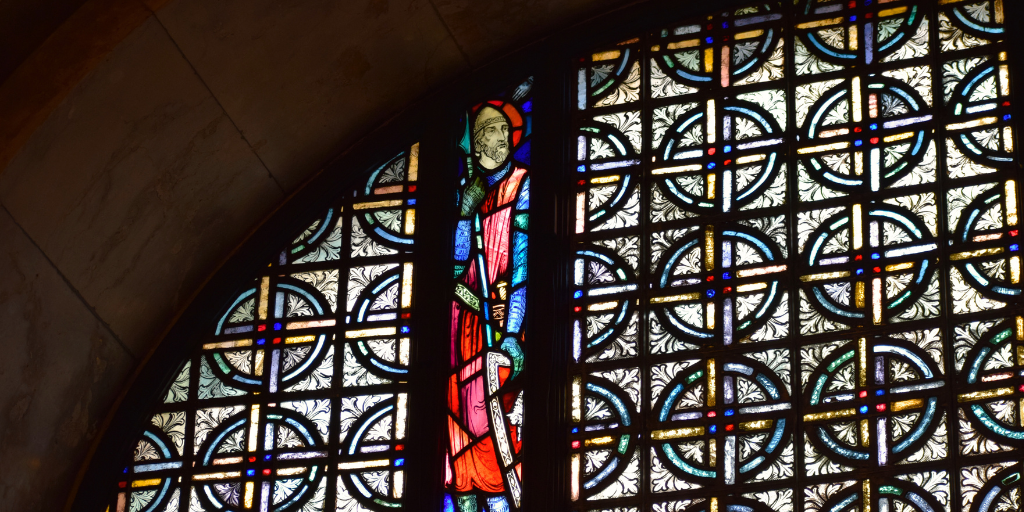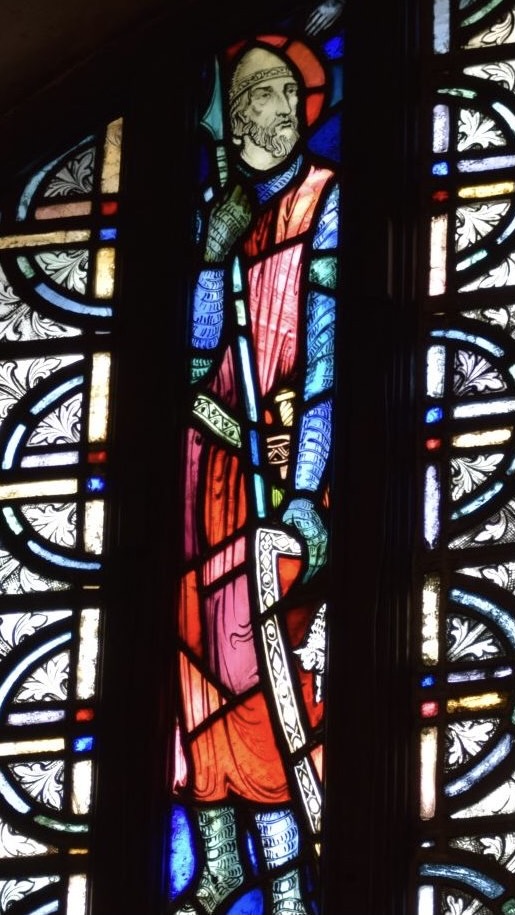
Gideon is often remembered as a mighty hero – as the conqueror who headed the Israelites’ triumph over the Midianites. But Gideon was plagued by doubts and weakness, continually asking God for assurance, and faltering even after God had delivered His people. The story of Gideon isn’t simply a story of faith and triumph; it’s a story of faith and doubts, rightful worship and improper worship, godly leadership and poor leadership. In this latest installment of the Biblical Figures series, discover what Gideon’s story means for believers today.
Gideon, the Angel of the Lord, and the Altars
The story of Gideon begins in the sixth chapter of Judges, at a time when the Israelites had done “evil in the sight of the Lord.” Because of their wrongdoing, God gave them into the hands of the Midianites, who pillaged and ravaged their land and livestock for seven years. As the people of Israel quaked in fear of their oppressors, they cried out to the Lord for aid.
In response, the Lord first sent a prophet to remind them of how he delivered them from slavery. Then, the Angel of the Lord went to an Israelite named Gideon and declared him a “mighty warrior,” exhorting him to fight. At first, Gideon was hesitant to fulfill the charge, questioning whether God was with them, and doubting his and his family’s significance. But finally, he asked God to give him a sign, and decided to prepare a burnt offering for the Lord.
When Gideon set forth the offering, the Angel of the Lord extended his staff and fire consumed the offering. The Lord then instructed Gideon to tear down his father’s altar to Baal and the Asherah beside it, and to build an altar to the Lord instead. Afraid of discovery, Gideon waited until the cover of darkness to complete the task, but was found out nevertheless. Though the men of the city were angry with him, his father saved him from their wrath by insisting that Baal would judge him. Because of Gideon’s act, they called him “Jerubbaal,” which means, “contender with Baal.”
Why Gideon Put Out the Fleece

Meanwhile, the enemies of Israel — the Midianites, along with the Amalekites and Kedemites — had gathered and crossed the Jordan. Gideon, fearing the impending battle, asked God for reassurance by putting a fleece on the ground and asking God to make the fleece wet while keeping the surrounding ground dry. In the morning, the ground was dry, but he wrung a bowlful of water out of the fleece. Gideon then requested that God do the opposite as a second sign the next night; when he awoke the next morning, the ground was wet and the fleece was dry.
God Tells Gideon to Take the 300
As Gideon prepared for battle, the Lord came to him, and told him that his troops were too numerous. The Lord wanted to make it clear that the victory would be from Him, so He told Gideon to send home any men who were fearful. Narrowing the numbers down further, God told Gideon to take his men to the water and watch how they drank. Those who “lapped with their hands to their mouths” and knelt to drink, Gideon kept — only 300 men out of 32,000 were left!
The Lord assured Gideon that He had handed the Midianites over to him, and advised him to listen to the talk of the camp if he still had doubts. Gideon, curious to hear what the Midianites had to say, sneaked into the camp with his servant Purah. Together they overheard a Midianite describing a dream in which a giant loaf of bread rolled into their camp and smashed a tent. His companion responded that it represented Gideon, and that they were doomed. When Gideon heard this, he returned to camp encouraged. Arming each of his men with only a trumpet and an empty pitcher with a torch inside, Gideon descended upon their enemies. As they blew their trumpets and shattered their pitchers, the Midianites fled before them, turning on each other with their swords. The Israelites were able to capture the princes of Midian — Oreb and Zeeb — and behead them.
Gideon’s Army Pursues the Kings
After routing the Midianites, Gideon and his men pursued their kings and stopped to ask for food in Succoth and Penuel. When the leaders of Succoth refused to feed them, Gideon warned of future retribution. Though low on supplies, Gideon and his men still managed to attack and capture the kings, Zebah and Zalmunna. As they returned, Gideon whipped the leaders of Succoth with thorns and briars, tore down the tower of Penuel, and killed the men there. Then Gideon killed Zebah and Zalmunna to avenge his brothers, who had died by their hands.
Following Gideon’s victory, the Israelites eagerly asked him to rule over them. Although he declined, saying that the Lord would rule over them, he could not resist the temptation of plunder. He asked for gold earrings from the riches that the Israelite soldiers had taken, and used them to make a gold ephod — a part of the ceremonial garb of the Israelites’ high priest — for his hometown of Ophrah. The ephod itself became an object of worship for the Israelites, and led them astray, becoming “a snare to Gideon and his household” (Judges 8:27).
Materialism wasn’t the only problem with Gideon’s lifestyle; he also had many concubines and 70 sons. Though Israel was rescued from Midian and prospered during his lifetime, after his death, they returned to the worship of Baal. Not only did they forget the goodness of Gideon and his family — they forgot the goodness of God and His deliverance.
The Significance of Proper Worship
The story of Gideon demonstrates how God deserves proper worship. After the Israelites devoted themselves to false gods, God delivered them over to their enemies. Later, when God spoke to Gideon, He didn’t grant the Israelites victory until after Gideon had torn down the altars to the false gods and offered Him a proper sacrifice. Despite God’s goodness and deliverance, Gideon still worshipped God in ways inconsistent with His commands; Gideon’s creation of the ephod not only led his household astray, but all of Israel.
God’s Perfect Provision for Imperfect People
In the story of Gideon, the weakness and imperfection of humans is contrasted with God’s perfect provision. Far from being the fearless leader, Gideon struggled with doubt and constantly asked the Lord for affirmation. The Lord provided assurances, whether He was protecting Gideon from the men who sought to kill him, or instructing Gideon to eavesdrop at the enemy camps. Yet even despite Gideon’s weaknesses, God used him to bring a miraculous victory to the Israelites. Gideon’s story serves as a reminder that, no matter what doubts or fears plague us or how impossible a situation may seem, nothing is impossible for God.

